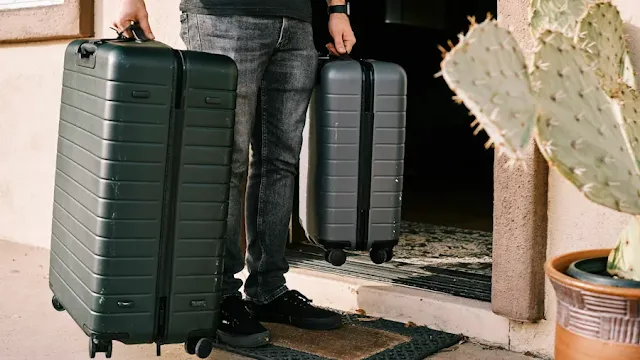Planning a trip to a tropical destination? Then mosquito repellent is probably high on your packing list. From jungle treks to beachside escapes, protecting yourself from mosquito bites is essential—but bringing bug repellent on a flight isn’t always straightforward. Airline safety rules, airport security checks, and country-specific regulations can all affect what you’re allowed to carry.
To help you avoid last-minute hassles at the airport, this guide breaks down everything you need to know about carrying mosquito repellent on flights, including Indian domestic airline rules, carry-on and checked baggage restrictions, and smart alternatives for stress-free travel.
Table of Contents
Is mosquito repellent allowed on Indian domestic flights?
Yes, mosquito repellent is generally allowed on Indian domestic flights, but certain restrictions apply depending on the type and packaging. As per guidelines from the Directorate General of Civil Aviation (DGCA):
- Aerosol mosquito repellents are not allowed in hand baggage due to their pressurized nature.
- Aerosol sprays may be packed in checked luggage if they are non-flammable, non-toxic, and not classified as hazardous.
- Liquid repellents up to 100 ml are allowed in carry-on baggage, in line with the standard liquids rule.
- Solid repellents and wipes face minimal restrictions and are usually permitted in both carry-on and checked baggage.
Airlines such as IndiGo and Air India may have additional requirements, so it’s always a good idea to confirm before you fly.
Carry-On Restrictions
If you plan to keep mosquito repellent in your hand luggage, security rules are quite strict. Based on TSA guidelines (which many countries follow):
- Aerosol insect repellents: Not permitted in carry-on baggage.
- Liquid repellents: Allowed only in containers of 100 ml (3.4 oz) or less, following the 3-1-1 liquids rule.
- Repellent wipes or solid sticks: Allowed without liquid restrictions and are often the most convenient option.
Checked Luggage Rules
Checked baggage offers more flexibility, but safety rules still apply:
- Aerosol mosquito repellents: Allowed if they are non-flammable, non-toxic, and not labeled as hazardous materials, in line with FAA guidelines.
- Liquid repellents: Can usually be packed in larger containers (up to 1 liter), provided they are securely sealed.
- Non-flammable aerosols: Must comply with airline rules and IATA regulations.
Important Things to Keep in Mind
- Proper packaging: Make sure containers are tightly sealed to prevent leaks.
- Clear labeling: Products should clearly list ingredients and safety warnings.
- International regulations: Some countries may restrict repellents containing DEET or similar chemicals.
- Passenger comfort: Unscented or low-odor repellents are more considerate for fellow travelers.
- Airline confirmation: Always double-check with your airline or airport authority before departure.
Non-Aerosol Alternatives
If you’d rather avoid aerosol restrictions altogether, these alternatives are traveler-friendly:
- Lotions and creams: DEET-based or natural repellents, allowed in carry-on (up to 100 ml) and checked baggage.
- Insect repellent wipes: Compact, spill-free, and easy to carry.
- Solid repellent sticks: Mess-free and ideal for flights.
Airline Policies on Mosquito Repellent
Most Indian airlines, including Air India, IndiGo, Vistara, and SpiceJet, follow international safety standards set by the International Civil Aviation Organization (ICAO). However, individual airline policies can vary, especially when it comes to aerosols, so checking ahead is always recommended.
If you plan to carry mosquito repellent in hand luggage, airport security restrictions apply:
- Aerosol insect repellents: ❌ Not permitted in carry-on baggage
- Liquid mosquito repellents: ✅ Allowed up to 100 ml (3.4 oz) per container
- Mosquito repellent wipes or sticks: ✅ Allowed with no liquid restrictions
For frequent travelers, wipes and solid sticks are the most TSA- and DGCA-friendly options.
Frequently Asked Questions
Can I pack mosquito repellent on a plane?
Yes. Aerosol repellents are generally allowed in checked baggage, while liquids (up to 100 ml) and wipes or sticks are permitted in carry-on luggage.
Is All Out mosquito repellent allowed on flights?
Aerosol versions of All Out should be packed in checked baggage only. Non-aerosol versions like wipes may be carried in hand luggage.
What type of mosquito repellent can I take on a plane?
Non-flammable aerosols are allowed in checked baggage. Lotions, wipes, and solid repellents are usually allowed in carry-on bags.
Can I pack aerosol bug spray in checked luggage?
Yes, provided it is non-flammable, non-toxic, and not marked as hazardous material.
What are the Indian airline rules for aerosols?
Most Indian airlines allow aerosols in checked baggage with restrictions on size and content. Always confirm with the airline.
Are aerosols allowed in hand luggage?
In most cases, no. Aerosols are usually prohibited in carry-on luggage unless they meet strict personal care guidelines.

















